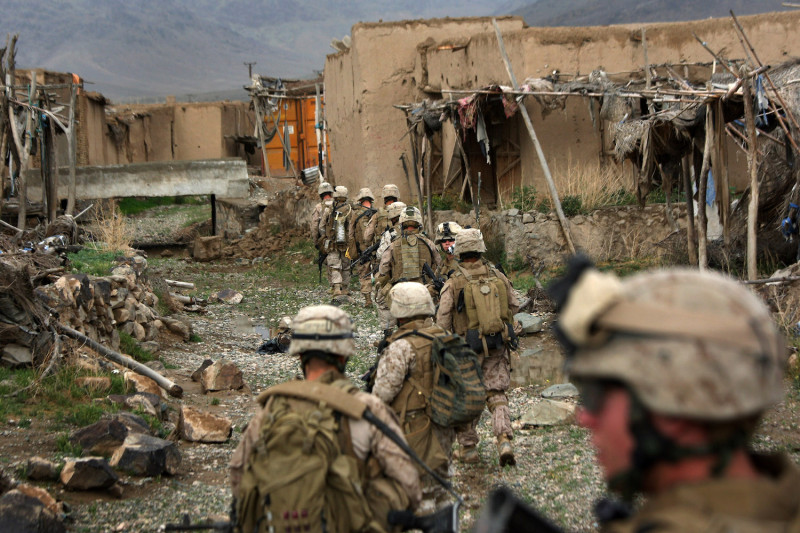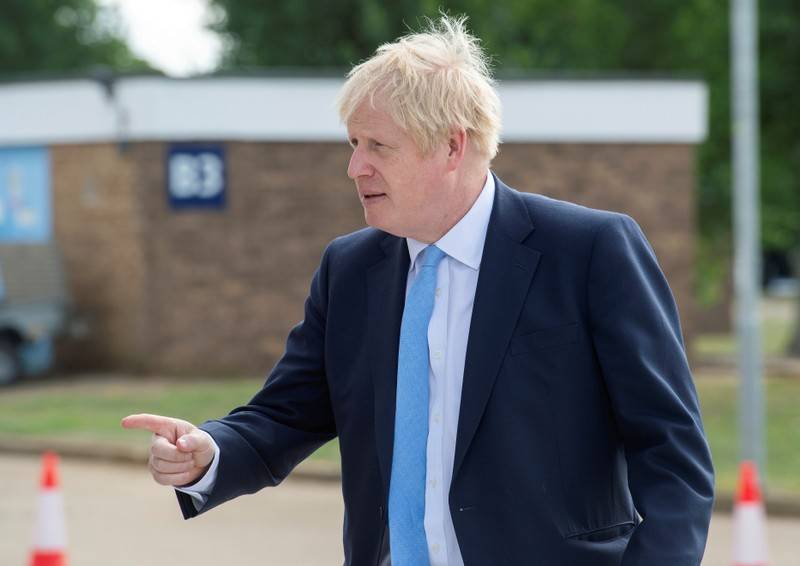Arab News
DR. JOHN C. HULSMAN

Surveying the ruins of America’s longest conflict — the futile 18 years in Afghanistan — there is really only one argument still standing as to why, despite all facts to the contrary, the US should continue its efforts.
The argument is very human, but horribly flawed. It goes something like this: “Yes, perhaps committing to nation-building and endless war (following the unseating of the then Al-Qaeda-affiliated Taliban in December 2001) was a mistake, but we have already committed so much blood and treasure to the effort, to leave now would negate all our sacrifices. Worse, premature withdrawal is bound to be seen as a calamitous setback to American credibility around the world.”
But in following such emotional, unreasoning advice, no great power would ever terminate a war they were losing. This will do little more than tragically extend the length of a conflict to no purpose, as has already happened in Vietnam, Iraq and now Afghanistan.
To keep gambling even as the losses pile up — without ever stopping to ponder the reasons for the losses in the first place — is perhaps the single greatest intellectual error the US has made in the past 50 years, as it largely explains all three debacles.
Instead, let us look at the true situation in Afghanistan through the realist lens. First, the war has cost a king’s ransom; money that could have been used to upgrade America’s schools, infrastructure, and social system. Including expenditures earmarked in 2019, the US war in Afghanistan has required Department of Defense and State Department appropriations totaling an unimaginable $975 billion (SR3.65 trillion), making it America’s third-costliest war after World War II ($4.1 trillion) and Iraq ($1.06 trillion).
And despite never emerging as anything like a viable political entity, the Afghan government has received over $133 billion in US aid since 2001, $5.7 billion of which was allotted in 2017 alone (making it the top recipient of American assistance that year).
Second, if the price in treasure has proven exorbitant, then the cost in blood has been equally fearsome. It is estimated that between the war’s start in October 2001 and October 2018, the war has directly killed 147,000 people, including 2,400 US military personnel, as well as 1,100 NATO and allied troops. The carnage has not let up. Afghan President Ashraf Ghani has stated that 45,000 of his security forces have been killed since his election in September 2014.
Third, all this sacrifice has not led to any concrete gains; on the contrary, the American-installed government in Kabul has failed to secure anything like country-wide political legitimacy. Both former President Hamid Karzai and Ghani won highly disputed elections, an outcome that has made them seem as little more than pawns of the Western forces. This is a disastrous state of affairs if a viable government is ever to be self-sustaining.
The Taliban now control or influence more territory than at any time since the initial US invasion in 2001. Facts are stubborn things, and no amount of obfuscation changes this basic and damning reality. The US strategy in Afghanistan, to put it mildly, has not met with success.
Fourth, and often overlooked, there is a strong geostrategic case to be made for drawing down the American war in Afghanistan. Regionally, the US’ focus on what amounts to a geostrategic backwater averts attention and focus from what is the definitive present danger to America in the region, that of curtailing Iran’s overly grand expansionistic ambitions in the Middle East. By diverting attention from this underlying geostrategic primary interest, America is doing itself no favors.
Further afield, the Trump administration is correct to see the rise of Great Power competition as the definitive challenge America faces in the dawning new era. Beyond all else, this means managing and balancing the rise of China in Asia, through the use of an enhanced alliance system centered around allies in “The Quad” (Australia, India, and Japan), as well as others in Southeast and east Asia. Afghanistan amounts to a sideshow. It is time for America to cut its very lengthy losses there.
In doing so, for all the geostrategic gains listed above, Washington must be extremely clear-eyed. As the recently completed eighth round of talks between the US and the Taliban in Doha made clear, the outlines of a deal are visible. America will withdraw its 14,000 troops over two years in return for the Taliban’s agreement not to host and support international terror actors in the country, such as Al-Qaeda and the Haqqani Network.
In these negotiations, there is reason to believe that the Taliban will keep their word. This is not because they are gentlemen, but because upholding such a bargain is in line with their strategic priorities: To get the US out of their country for good, allowing them to finish a war they will likely win. Such an unsatisfying result will be the messy end to much suffering and huge costs; but this is what successful Great Powers do.




